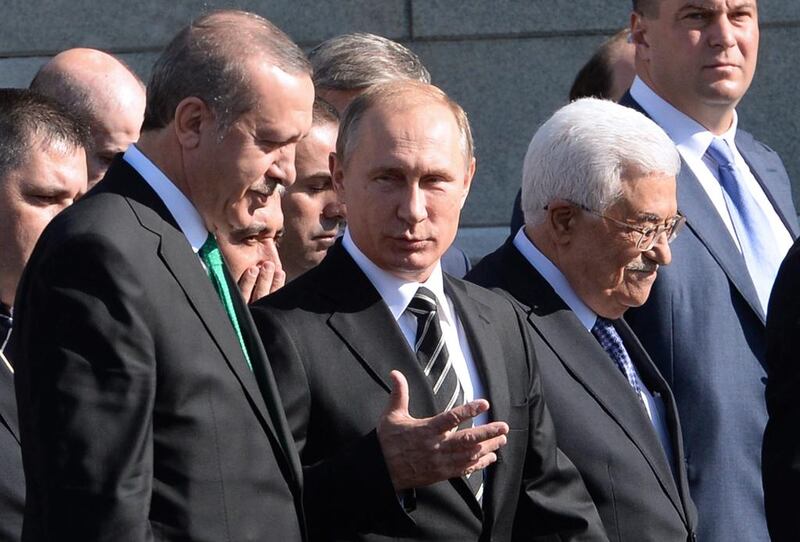Ahead of this year’s United Nations General Assembly, Russian president Vladimir Putin has been busy with Syria. Moscow has moved a small army’s worth of fighters, bombers, jets and helicopters to airfields in Latakia with the explicit purpose of propping up Bashar Al Assad’s regime. Meanwhile, Mr Putin has been welcoming a steady flow of foreign leaders to discuss their stake in the Syrian conflict.
In the past week, Mr Putin has had meetings with Israeli and Turkish leaders. With the Ukraine conflict burning in the background, Mr Putin is flexing his muscles by showing the extent of Russia’s foothold in the Syrian civil war. In the process, Moscow is expanding its diplomatic portfolio to include America’s major allies in the region. Of the two allies in Russia this week, Turkey is the more important.
Turkey is a crucial member of the anti-ISIL coalition despite its demonstrated stubbornness over active participation in the fight. But Turkey is a large country with many long borders and often conflicting geopolitical interests. Indeed, Mr Erdogan’s meeting in Moscow included discussion about the Turkish Stream gas pipeline project, which is designed to carry Russian natural gas through Turkey. The project, worth an estimated €11.5 billion (Dh46bn), has been halted in recent months.
Now, Russia appears to be using its energy influence to tease Turkey away from its relationship with the US-led anti-ISIL coalition, which continues to carry out air strikes on ISIL positions in Syria and Iraq. This is alarming. Turkey remains at odds with Russia over the future direction of Syria. Since the beginning of the Syrian civil war, Turkey has had a vociferously anti-Assad position. For Ankara to pursue deeper diplomatic and economic ties with Russia – the primary backer of the Assad regime – is concerning, particularly given how unfocused the diplomatic efforts of the anti-ISIL coalition are at the moment.
As such, the US-led coalition could be in danger of losing Turkey as an active ally if Ankara continues to pivot towards Moscow with energy fuelling the shift. Turkey is too important to the coalition for this to happen.





